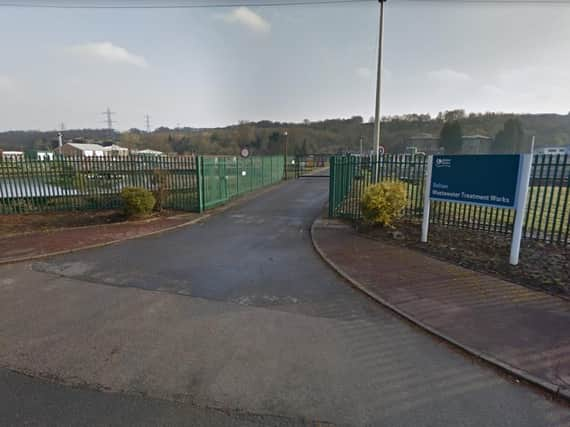North west sewage works including Lancaster hold key to Covid tracking


Since March this year, United Utilities has been helping researchers at Bangor University to study levels of the virus in several north west towns.
And the pilot project was so successful that the technique has now been rolled out by Defra across the UK.
Advertisement
Hide AdAdvertisement
Hide AdUnited Utilities has been providing the scientists with samples of sewage from seven sewage treatment plants across the region - Bolton, Liverpool, Crewe, Lancaster, Barrow, Leigh and Meols (north Wirral).
Scientists have found that people with Covid-19 release remnants of the virus in their faeces. These remnants are not infectious however they can provide a very useful and accurate indication of levels of the virus in a community.
The results can provide local health professionals with a clearer picture of infection rates by identifying where there are high numbers, particularly for asymptomatic carriers and before people start showing symptoms. This will allow local authorities to take early action to slow the spread of the virus.
The data will be shared with NHS Test and Trace and inform where new outbreaks may be happening. It means that public health professionals can encourage people to get tested or take extra precautions.
Advertisement
Hide AdAdvertisement
Hide AdProf Davey Jones, who led the Bangor University pilot project, said the testing process can play an important role in monitoring how the virus is reducing or spreading.
He said: “We have discovered that people excrete remains of the virus as soon as they are infected and often before they show symptoms.
"That can give us a two and a half week lead on the statistics produced by hospitals when people are admitted. In other words, it can act as an early warning system if levels of the virus in society’s wastewater start to increase.”
Charmian Abbott, chief scientist at United Utilities, said: “This is a really important scientific study and I’m delighted that we have been able to help out.
Advertisement
Hide AdAdvertisement
Hide Ad“While the virus is not infectious after it is excreted, raw sewage of course contains many other bacteria and viruses, so all of the workers and researchers are taking the usual hygiene precautions.
“We will continue to work in collaboration with the scientific community and the rest of the water industry as we all play our part to learn more about this new disease.”
Comment Guidelines
National World encourages reader discussion on our stories. User feedback, insights and back-and-forth exchanges add a rich layer of context to reporting. Please review our Community Guidelines before commenting.